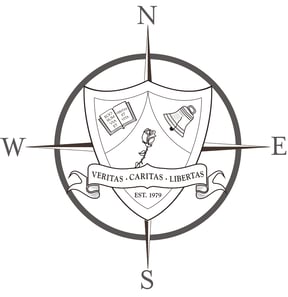In our beautiful, diverse, and
- We value habits of mind that allow us to pursue professional and academic excellence -- including tenacity, thoroughness, creativity, and intellectual honesty and humility.
- We embrace habits of heart that strengthen our friendships, family relationships, and communities -- including empathy, compassion, respect, and gratitude.
- And we honor habits of character that allow us to face challenges and embrace opportunities -- including courage, temperance, responsibility, and integrity.
So how do we develop these strengths?
Two thousand years ago, the philosopher Aristotle wrote, “We learn by doing. [We] become builders by building and
But what is justice? And what is bravery? Every virtue, or strength, is found at the high point between two extremes. For example, true courage lies between cowardice or emotional paralysis (too much fear) on the one hand, and recklessness (not enough appropriate caution) on the other. Similarly, hope can be eroded by both despair and wishful thinking. This is a familiar concept -- even young children know that Goldilocks encounters “too hot, too cold, too hard, too soft” as she searches for “just right.”
Every day presents us with numerous opportunities to aim high, to build strong habits, to learn by doing. How do we treat friends, family, and strangers who cross our path? How do we prioritize our time? How do we respond to setbacks and frustrations? Courage will not look the same in every situation, and it takes practice and experience to habitually respond to challenges bravely.
We don’t want to simply go through the motions of life; we want to flourish. Ancient wisdom and modern research offer practical insights into how we can use ordinary moments to shape our character -- in other words, how we can develop the practical wisdom to navigate the challenges and opportunities that come our way as we strive to become the best version of ourselves.
In short, when you encounter a challenge or opportunity, you are not bound to your first reaction. You can own your response when you:
- Recognize your first, often instinctive, reaction
- Pause to reflect on the situation, remembering what you are aiming for, and
who you aspire to be. - Recalibrate and respond in a way that matches your vision, your why
This is practical wisdom in action.
Let’s take a closer look at this process.
What is Your First Reaction?
Our gut-level response to a situation is our “first reaction.” Depending on our personality, temperament, and prior life experiences, we all tend to initially gravitate toward one extreme or another. In the face of conflict, is our first instinct to rage or retreat? In expressing difficult feelings, do we gravitate toward passive or aggressive communication?
The same external situation will evoke different first reactions in different people: excitement or fear, hope or dread, joy or disgust. Biologically, we are all equipped with a “fight-or-flight response” to stress: some of us are inclined to use that extra burst of adrenaline to confront a situation, and some of us want to use it to retreat.
Here’s the good news: these first reactions are not good or bad, right or wrong. They just are. While we may not have control over the emotion that washes over us, we do have the ability to choose what we do next. That is where a compass helps to point the way. It helps us to know what to do when we don’t know what to do. In other words, it helps us to choose well.
What is Your Aim? Your Vision? Your Why?
The Cheshire Cat told Alice in
Giving students opportunities to articulate a strong vision about
Research out of Stanford University found that asking middle school students to reflect and write about the things that truly mattered to them during stressful points in the school year resulted in significant academic gains, particularly for at-risk students. A similar writing exercise with first-generation college students — where they were asked to write about the three values that were most important to them — also resulted in academic gains.
So how do we bridge the gap between our initial reaction and a thoughtful response that matches who we are and
Reflect - Recalibrate - Respond
Before, during, or after a situation, press pause and ask clarifying questions such as:
- How am I feeling right now? Why?
- What do I know?
- What do I need to know?
- Who can help?
- What do I want the outcome of the situation to be?
If you are having a strong emotional reaction, reflection can help you pay attention to what it might be telling you. As Dr. Susan David from Harvard University explained, “emotions can give you tremendous data.” However, she adds, “emotions are data, not directions.” For example, the feeling of loneliness may tell you that you crave connection -- but there are lots of ways to seek out social connection, some healthy and some destructive.
When we reflect, we can evaluate our reactions and take small, deliberate steps to move us in the direction we want to go. If I want to take better care of my physical wellness, what’s one step I can take, right now? If I am overwhelmed by demands, what small changes can I make to prioritize my time? If I am in conflict with a friend, what might help open up lines of communication?
There’s no magic formula. We will have moments of success and moments that feel like failures. That’s why taking time to reflect, recalibrate, and respond is critical to developing practical wisdom. We are all works in progress. We all have inherent dignity. We grow with experience, facing life’s ups and downs with as much grace as we can muster. When we remember who we are and





